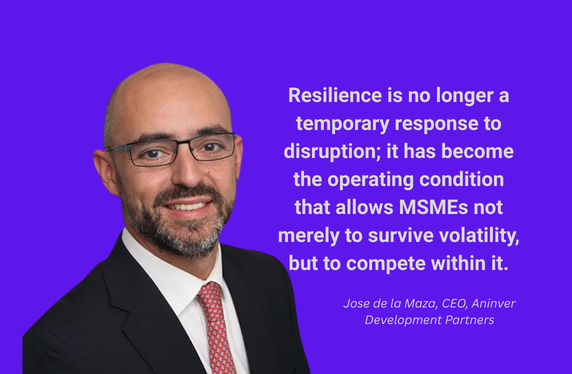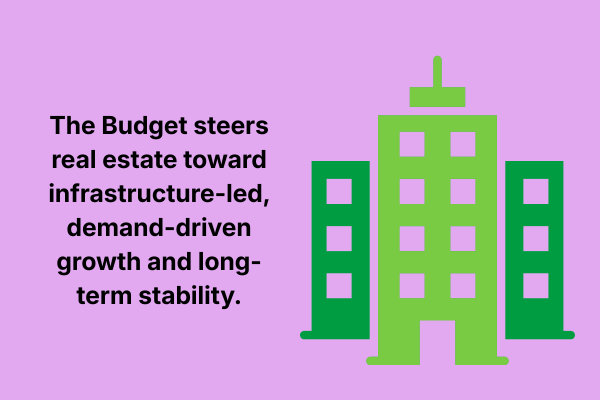Smarter Markets, Stronger Economies: AI-Driven Deregulation for the Digital Age
Deregulation, tax reforms, and pro-business policies continue to shape economic discourse worldwide. While governments across developed and emerging economies have undertaken significant regulatory reforms—ranging from the UK’s post-Brexit adjustments to India’s ongoing business compliance simplifications—the conversation around bureaucratic inefficiencies, compliance costs, and regulatory bottlenecks remains critical.
One of the most transformative levers of deregulation today is technology-driven governance. The integration of artificial intelligence (AI), digital governance, and automated compliance systems has the potential to streamline bureaucratic processes, reduce corruption, and enhance regulatory efficiency. Countries such as Estonia, Singapore, and the UAE have already implemented AI-driven tax administration, automated business registration, and digital licensing platforms, dramatically reducing compliance burdens for businesses and fostering a more competitive economic environment.
However, the debate is far from settled. While deregulation and technology-driven reforms have yielded positive economic outcomes in some regions, regulatory inefficiencies still stifle entrepreneurship, slow job creation, and restrict economic dynamism in many economies. The challenge now is to accelerate these reforms in a way that ensures tangible benefits for businesses and workers alike while balancing necessary regulatory safeguards.
As the U.S. moves toward another phase of economic policy shifts under Donald Trump, the ripple effects of its approach to deregulation, tax policies, and business incentives are likely to influence global regulatory frameworks. Will this drive a new wave of market-friendly reforms, leveraging AI and digital governance, or will it reignite concerns over corporate excesses and economic disparities? The coming years will be critical in shaping the future of global regulatory landscapes.
The Regulatory Burden: A Barrier to Entrepreneurship and Economic Expansion
Excessive regulation has long been a structural impediment to economic growth, particularly for small businesses and startups. Unlike large corporations that can absorb compliance costs, smaller enterprises often struggle under the weight of bureaucratic red tape. Complex licensing requirements, redundant compliance frameworks, and excessive labor laws create barriers that hinder market entry and innovation.
The impact is twofold: first, it discourages entrepreneurship by making business formation an arduous process; second, it diverts resources from productive activities, forcing firms to allocate capital toward compliance rather than expansion and innovation. World Bank’s Doing Business reports consistently highlight a direct correlation between regulatory efficiency and business competitiveness. Nations that streamline business regulations see higher levels of investment, greater entrepreneurial activity, and increased employment.
Deregulation as a Catalyst for Growth
From a macroeconomic perspective, deregulation aligns with supply-side economic principles advocated by Milton Friedman and Arthur Laffer. Supply-side economics posits that reducing regulatory burdens, lowering taxes, and minimizing government intervention can enhance economic efficiency, incentivize investment, and stimulate long-term growth. Friedman argued that excessive regulation distorts market mechanisms, leading to inefficiencies and slowing productivity. (Capitalism and freedom, 1962). The economic impact of tax cuts is generally positive, as they stimulate economic activity, drive job creation, and boost production by incentivizing investment and consumer spending. According to Arthur Laffer’s analysis in The Laffer Curve: Past, Present, and Future (2004), lower tax rates can lead to increased taxable economic activity, ultimately offsetting revenue losses and fostering long-term growth.These principles have influenced pro-business policy frameworks worldwide, particularly in economies seeking to enhance competitiveness and attract investment.
Reducing regulatory barriers enhances productivity, increases labor mobility, and ensures efficient capital allocation. Countries that adopt deregulation-friendly policies attract higher levels of foreign direct investment (FDI) and witness an uptick in job creation and wage growth.
Studies by UNIDO and the International Labour Organization (ILO) suggest that an overly stringent regulatory environment, if not carefully designed, can lead to unintended consequences such as higher unemployment and increased informality. In contrast, economies that implement targeted deregulation—such as simplifying business licensing, streamlining tax compliance, and easing labor market rigidities—tend to foster more dynamic economic activity.
Lowering compliance costs incentivizes capital expenditures, while tax incentives encourage firms to reinvest in expansion and workforce development. Robert Mundell has long argued that strategic tax reductions lead to higher economic activity, ultimately broadening the tax base and mitigating revenue losses in the long term.
Conversely, economies burdened with excessive regulation tend to experience capital flight, weaker job creation, and an expansion of informal business activities. A well-calibrated approach—one that removes inefficient regulations without compromising consumer and environmental protections—remains key to sustaining economic resilience.
Pro-Business vs. Pro-Market: Striking the Right Balance
The debate over deregulation is often framed as a business-friendly initiative, but a crucial distinction must be made between pro-business and pro-market policies. While pro-business policies may favor large corporations by reducing tax burdens and easing compliance requirements, they do not necessarily foster competition. Instead, deregulation should be structured as a pro-market strategy—one that enhances competition, lowers entry barriers for small enterprises, and prevents monopolistic practices.
Pro-business deregulation that disproportionately benefits large firms risks creating an uneven playing field, where dominant players entrench their market position at the expense of smaller competitors. A well-designed regulatory rollback should, therefore, prioritize policies that enhance market accessibility for startups and SMEs while preserving a competitive landscape.
Technology-Driven Deregulation: The Role of AI and E-Governance
A key lever for deregulation in the 21st century is the adoption of artificial intelligence (AI) and digital governance tools. Governments worldwide are increasingly leveraging technology to streamline compliance and reduce bureaucratic inefficiencies. AI-driven tax administration, automated business registration, and digital licensing platforms can significantly cut regulatory delays, reduce corruption, and lower operational costs for businesses.
For example, AI-powered tax systems can automate compliance procedures, enabling businesses to file returns with minimal paperwork. Predictive analytics can enhance fraud detection, eliminating the need for intrusive and time-consuming manual audits. Digital governance tools can also expedite business licensing, making it easier for entrepreneurs to navigate regulatory processes without the traditional hurdles associated with bureaucracy.
Toward a Balanced Approach to Deregulation
The key lies in a targeted, pro-market approach that eliminates inefficiencies while preserving essential protections. For global policymakers, the path forward should focus on:
- Reducing barriers to entry for small enterprises and entrepreneurs who are starting up.
- Leveraging technology to enhance regulatory efficiency and transparency.
- Streamlining tax and compliance frameworks to promote investment.
- Ensuring that deregulation does not translate into monopolistic advantages for large firms.
As governments navigate the complexities of economic policy, one pressing question remains: Will regulatory frameworks evolve to sustain competitive entrepreneurship, or will deregulation disproportionately favor corporate incumbents? The answer will shape the future of global business dynamics in the years to come.
Author Profile

-
Perumal Koshy is Editor of Global SME News and Director of Strategic Initiatives at Enterprise Futures Lab. He writes on MSMEs, enterprise development, and policy issues affecting small business ecosystems.
Linkedin: https://www.linkedin.com/in/caushie/
Latest entries
 FEATURED2 February 2026Outlook 2026 | Real Estate: Infrastructure-Led Growth, Integrated Communities, and the Trust Imperative
FEATURED2 February 2026Outlook 2026 | Real Estate: Infrastructure-Led Growth, Integrated Communities, and the Trust Imperative Entreprenurs30 January 2026Quality, Crisis, and Consistency: The Rungta Tea Story
Entreprenurs30 January 2026Quality, Crisis, and Consistency: The Rungta Tea Story Entreprenurs21 August 2025Entrepreneurship, Values, and Corporate Governance: Building Nations, Not Just Profits
Entreprenurs21 August 2025Entrepreneurship, Values, and Corporate Governance: Building Nations, Not Just Profits Africa13 August 2025 A New Landmark Report Calls for Rethinking SME Policies, Digital Readiness, and Sustainable Growth
Africa13 August 2025 A New Landmark Report Calls for Rethinking SME Policies, Digital Readiness, and Sustainable Growth








